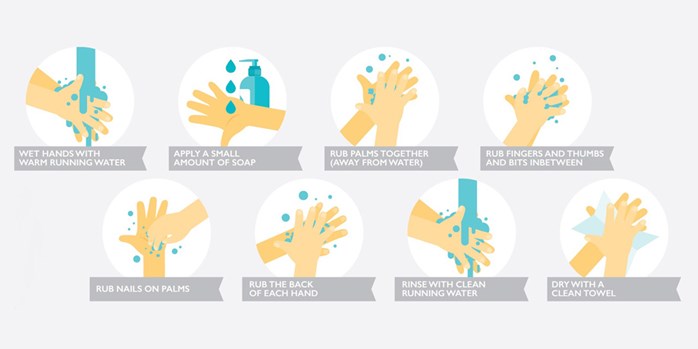A newborn baby's immune system is not fully developed and they need extra protection from germs that could cause illness and infection. Simple hygiene measures can offer protection to newborns.
A newborn baby's immune system is not fully developed and they need extra protection from germs that could cause illness and infection. Simple hygiene measures can offer protection to newborns.
One of the effective ways to help stop the spread of germs and protect babies and young children from infection is to wash the hands regularly with soap and clean running water.
Hands should always be washed:

If soap and clean water are not readily available, an alcohol based hand sanitiser should be used. However, if the hands are dirty, they should always be washed. Use of hand sanitisers by children should be under adult supervision.
[1] World Health Organisation - Diarroea: why children are still dying and what can be done. Available at: http://www.who.int/maternal_child_adolescent/documents/9789241598415/en/
[2]
http://www.who.int/mediacentre/factsheets/fs330/en/
Diarrhoeal Disease
Where possible, breastfeeding provides the most substantial health benefits for both mother and baby. Breastfeeding is so beneficial because:
Where breastfeeding is not possible, a low protein formula milk is the best alternative.
Vaccinating your child against infections is an extremely important measure in ensuring they are as well protected from harmful germs as possible. Three good reasons to have your child vaccinated are:
Areas that babies touch directly, as well as other surfaces frequently touched by family members, should all be hygienically cleaned to ensure germs aren’t transferred on the hands around the home:
Bedding and baby clothing can often harbour infection causing germs from faeces, vomit and food. To ensure laundry is hygienically clean it is important to: